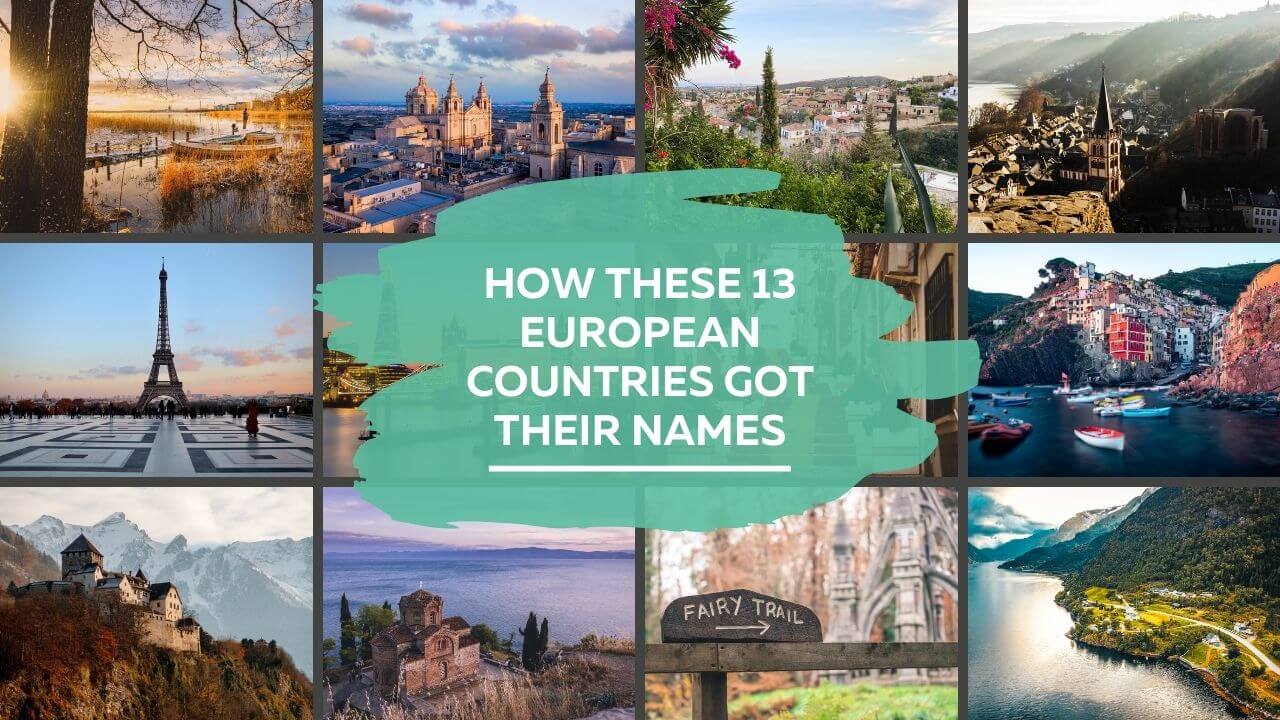Do you know how European countries got their names?
- Land of Tall People
- Island of Copper
- Land of the Blackbirds
These are all the meanings of real European countries. So let’s find out what means what. In this post, you'll discover how 13 European countries got their names.
You'll go on a tour of Europe through space and time. And you'll get to brush up on your language skills as you go, and learn a few new words.
If you like watching videos, hit play below to watch the video version of this post. Otherwise, keep scrolling to read about how European countries got their names – these 13 at least!
Pro Tip
No matter the name of the country whose language you want to learn, if you want to get fluent fast, you'll need to use the right method.
For a fun and effective method that teaches you through stories, not rules, check out my StoryLearning® courses.
#1 North Macedonia
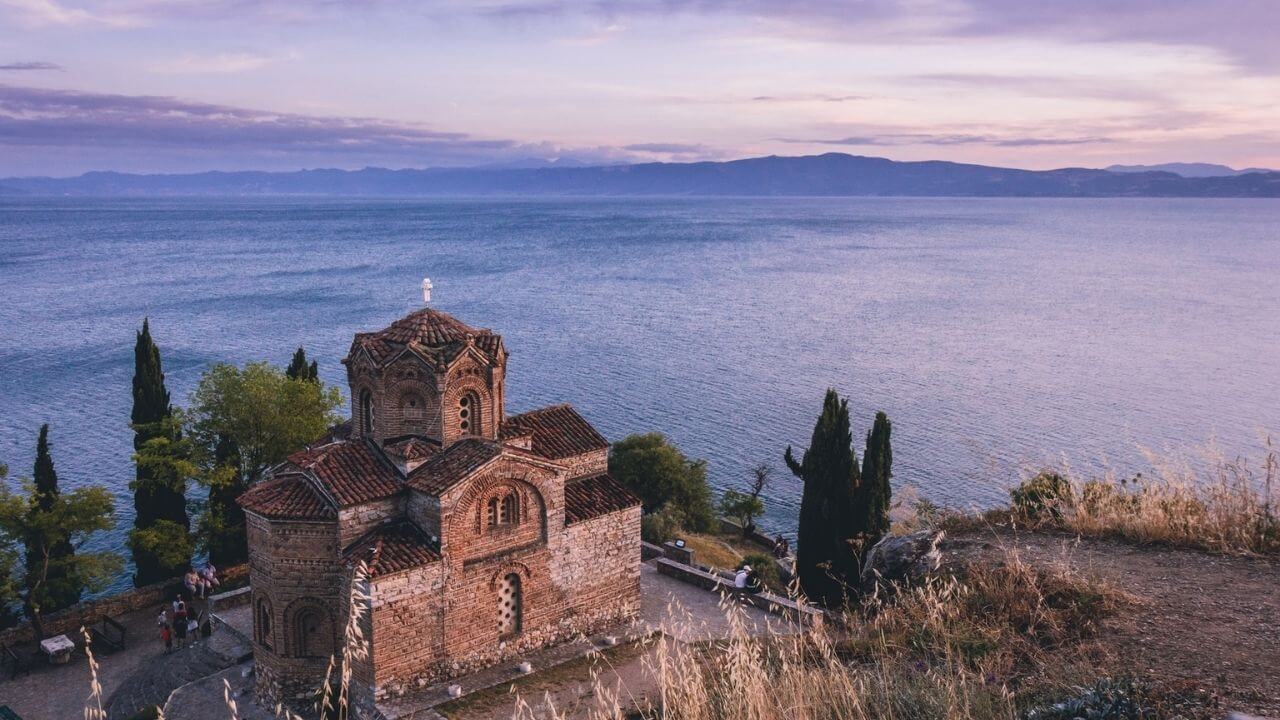
The Macedonian Empire was once the most powerful empire in the world – an enormous kingdom ruled by Alexander the Great.
Enormous, but could it be that the people were enormous too?
Maybe! And you’ll see why.
But the name really gives it away:
Macedonia was named from a Greek word, Makedonía which comes from an ancient Greek adjective meaning tall and slim.
And the name Macedonians originally meant either “highlanders” or “the tall ones”, and probably described the look of the people.
And so the country name means…Land of Tall People!
BUT there’s also a similar ancient Greek word, makednoi, meaning to come from the mountains.
Apparently, the early Macedonians were the same tribe as the Dorians who lived in the Pindus mountain range.
So maybe Macedonia actually means “Tall people from the mountains”.
Are they still tall? You tell me.
#2 Spain
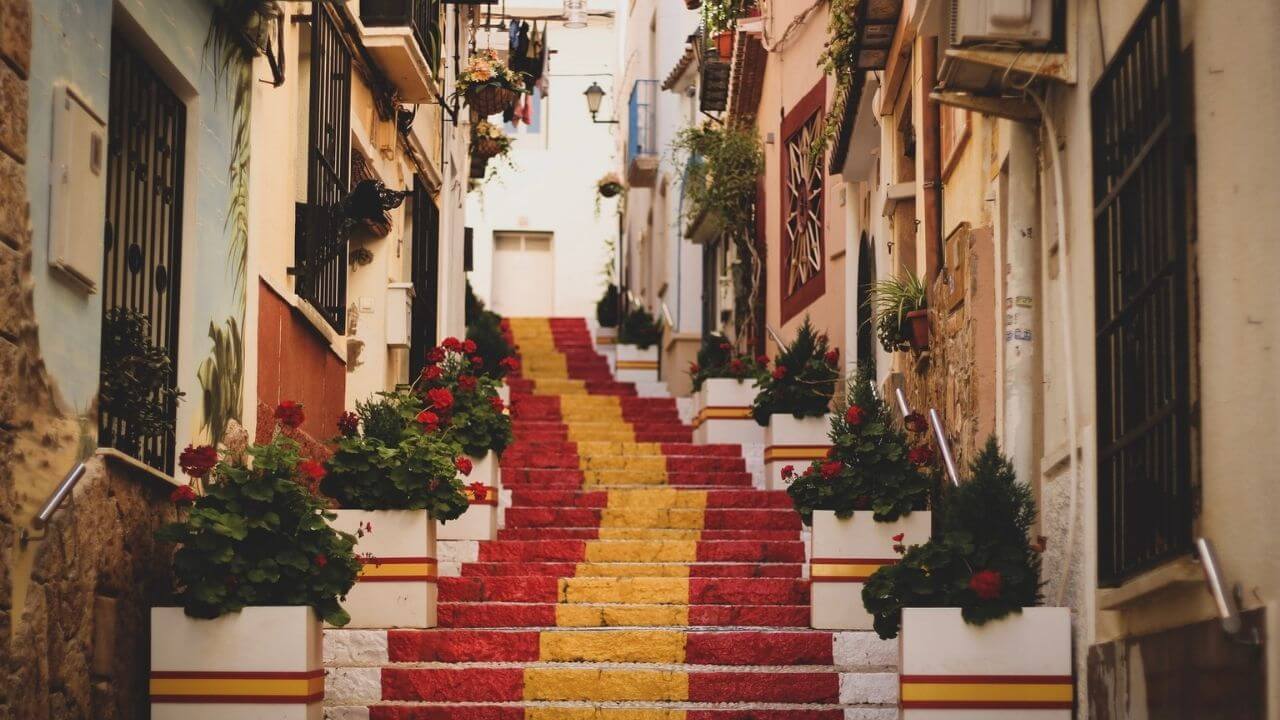
Spain was first called Iberia, from the ancient Greek name for the Ebro River.
Somewhere around 300 B.C. the Carthaginians invaded the Iberian Peninsula and apparently they got an eyeful of bunnies hopping all over the place, because they named it The Land of Rabbits.
But before you go “Aww!” I should warn you there’s a plot twist coming.
The Carthiginians spoke a Phonecian language called Punic, and in Punic, rabbit was sphan, as in Spaniard.
Short story: they called it Ispania and when the Romans arrived, they liked this name and decided to keep it, with a slight adjustment to make it more Roman-like: Hispania, and of course, now it’s known as España in Spain.
You’d think with all those bunnies running around Carthage would give Spania a break, but they ravaged it anyway and you can hear more about that in this cool video.
Anyway, archeologists later found Roman coins in the region, and the coins show a female figure with a rabbit at her feet, so there must be something to this.
Plot twist…
The Punic word in question – sphan – actually means hyrax, which is the cute little rodent you can see below, not a bunny rabbit.

Somewhere, something got lost in translation.
At least it wasn’t the giant rabbit of Minorca – a few million years too late…
You couldn’t have paid me any amount of money to invade Spain if THOSE things were running riot. Here's a pic of one, just to terrify you:
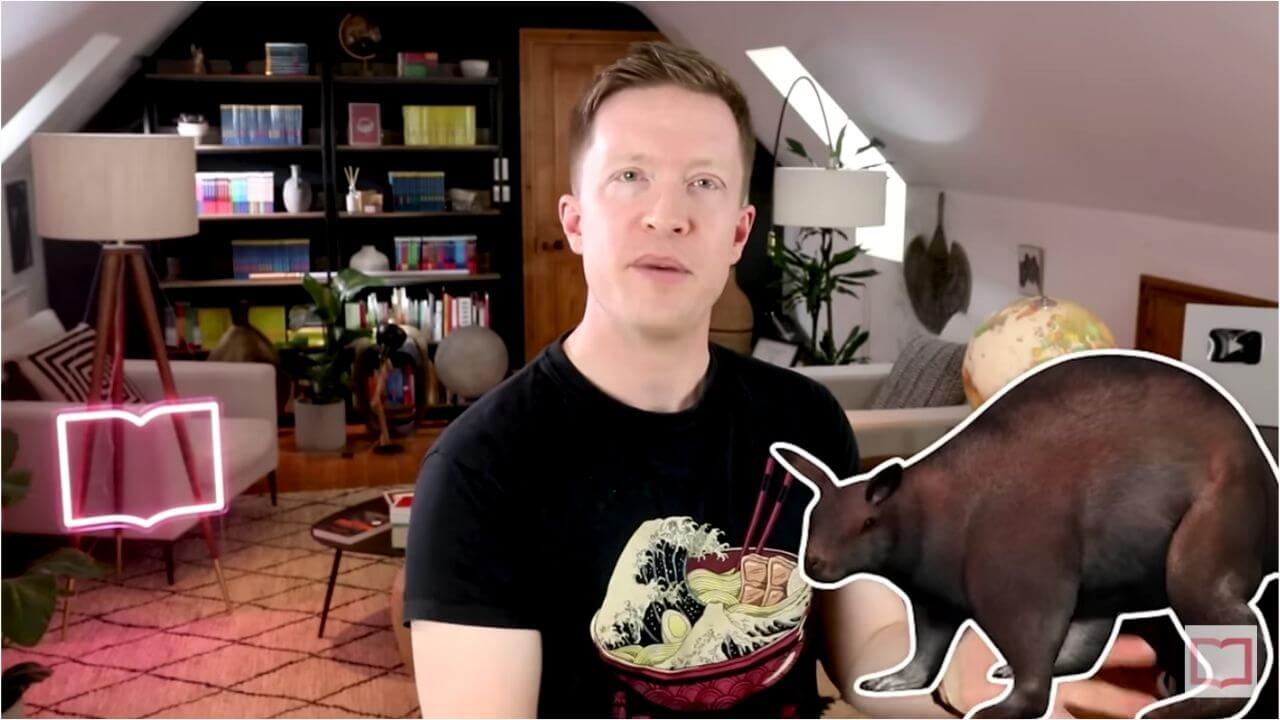
#3 Malta
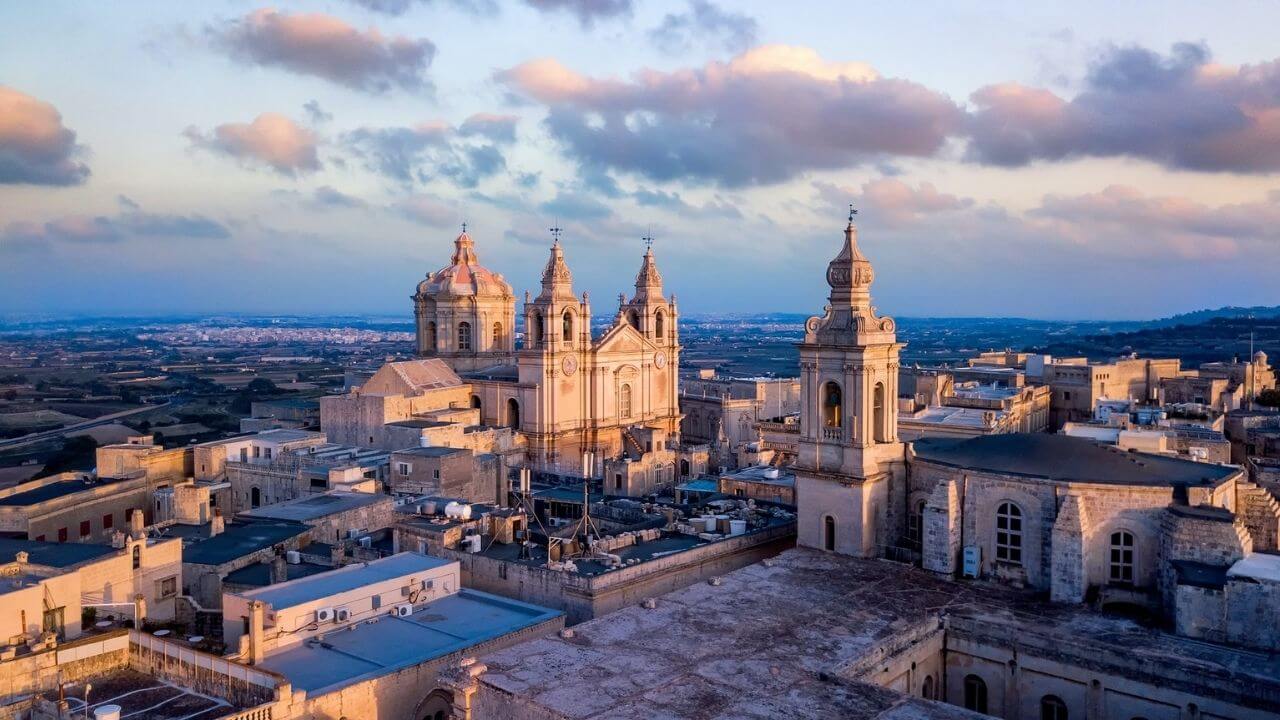
If that last one freaked you out, this one might go down easier…
The island of Malta used to be famous for its honey, and in ancient Greek the word meaning “bee” was melitta, which gives us meli, meaning “honey”.
So the ancient Greeks called the island Melitē, meaning “honey” or “honey-sweet”, and the Romans later called it Melita.
The Maltese honey bee is small and dark and has shorter-than-usual legs and wings. Damn, this bee sounds cute!
He was very aggressive, though. I hope there’s no giant fossil version.
Well, as it goes with these things, there’s another theory that the name Malta comes from the word Maleth, a Phoenician word meaning “haven” or place of refuge – not too hard to imagine, since Malta has many little bays and coves you could hide in…
Well, as long as you’re not allergic to bees!
#4 Liechtenstein
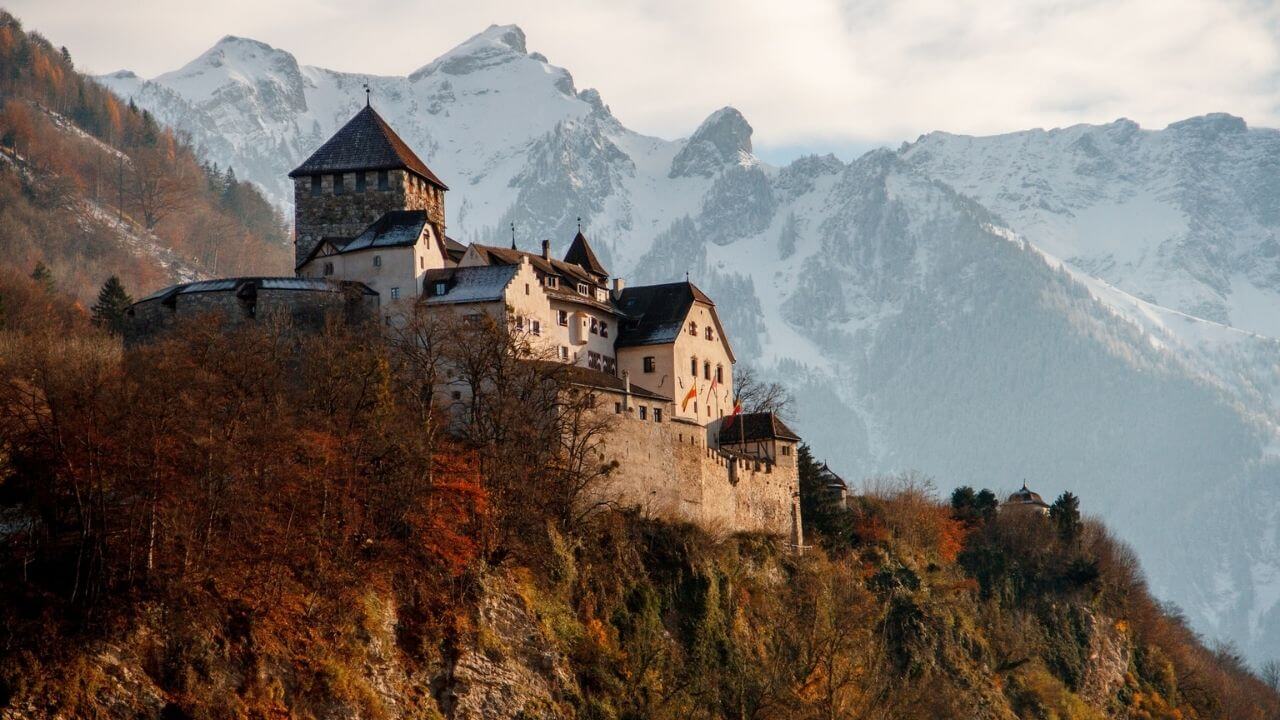
In lower Austria there’s a private castle at the edge of the Vienna Woods called Liechtenstein Castle.
It used to be part of a fortress belt made up of several castles along the Vienna woods to ward off attacks.
There’s a dungeon and everything.
The castle was initially named after the light colour of the rock…and it meant “light stone”, from the German words licht meaning light and stein meaning stone.
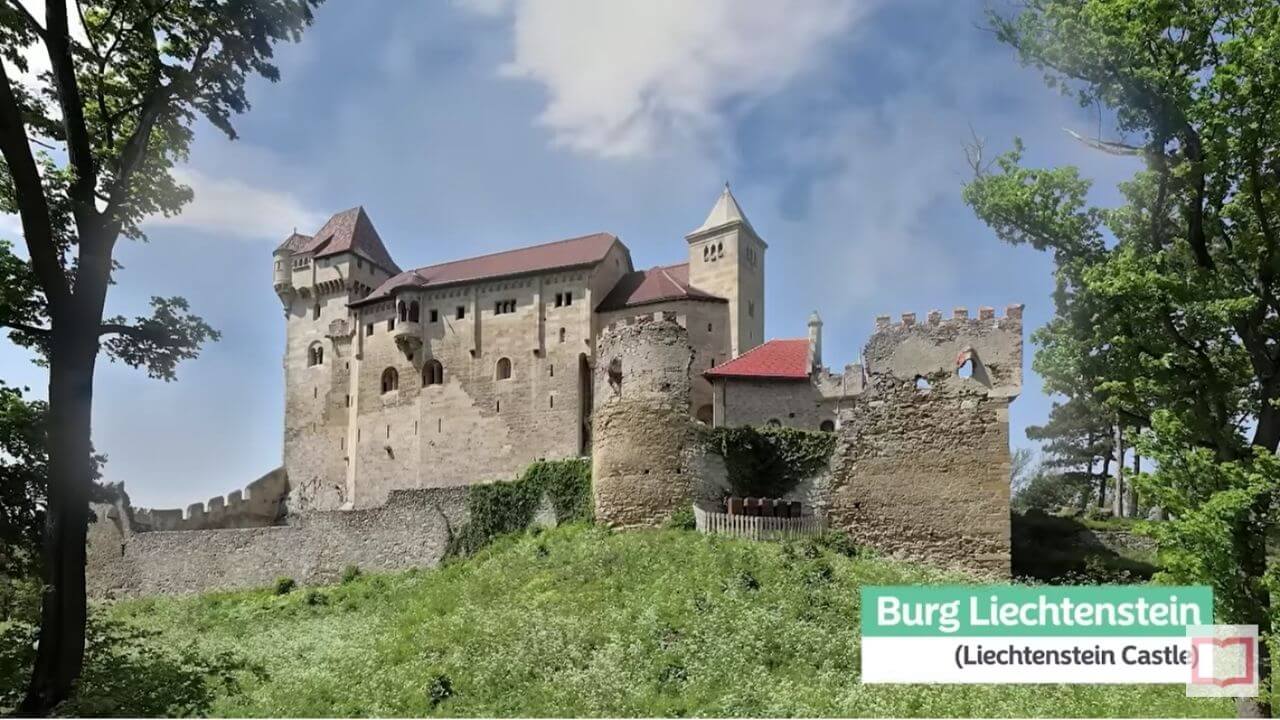
Anyway, over the centuries the noble family acquired huge swathes of land, including parts of modern-day Liechtenstein.
But the territory was all held by feudal lords.
Fast forward to 1699, and the Prince of the day was finally able to buy two tiny territories that had no feudal lords: Schellenberg and the county of Vaduz.
The Holy Roman Emperor united the two little states and named the new place “Liechtenstein”
According to legend, Liechtenstein Castle came to life on bright full moon nights!
So it makes perfect sense that it came to mean “bright stone”.
#5 Norway
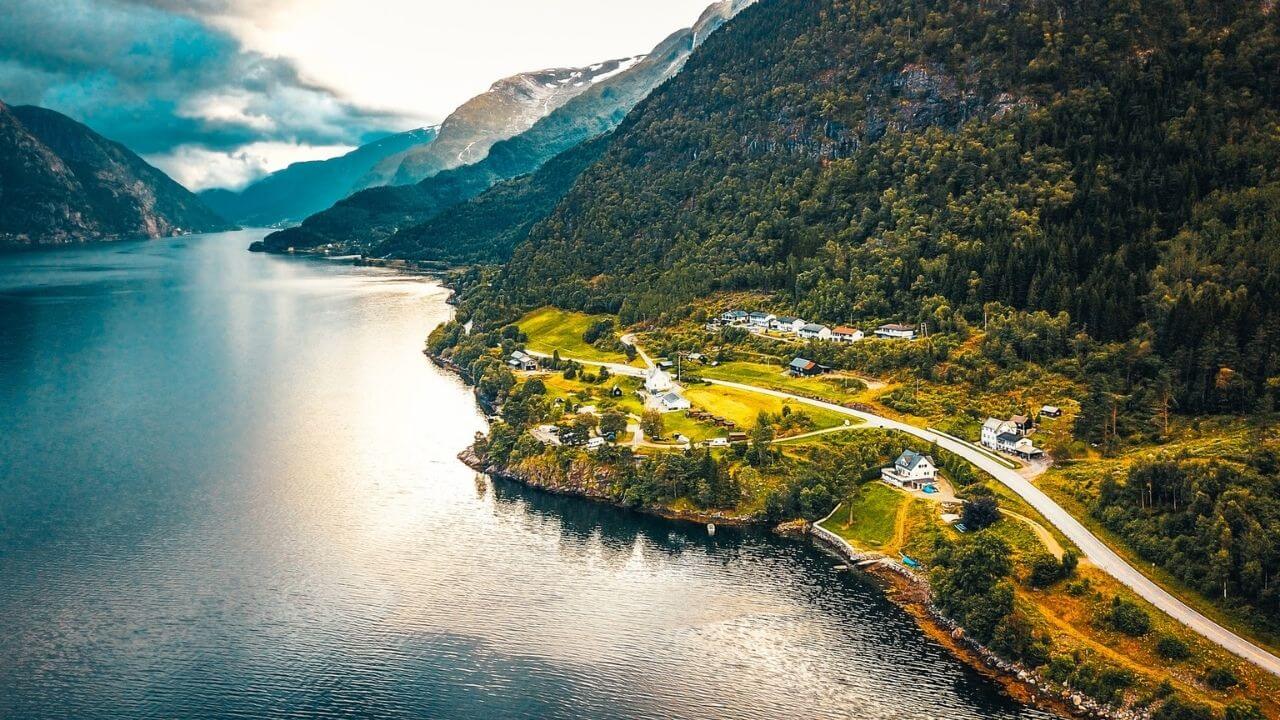
Not every name is full of enchantment, but when your country is Norway, you have more than a few hundred epic tales to tell.
After all, this was the land of vikings!
In Old Norse, Norway was called Norrevegr and it means “The Way North”, and as far as anyone can tell, it was a major pathway of the vikings.
But let me not get in the way of legend…
According to Norse mythology, the god Nór was the founder of Norway.
We know him as Thor.
He discovered the region while on a mission to find his sister, who had mysteriously disappeared.
When he found her, she’d been kidnapped by the son of a giant, so he married that guy’s sister, settled in the new land, and called it the Kingd–om of Nór!
#6 France
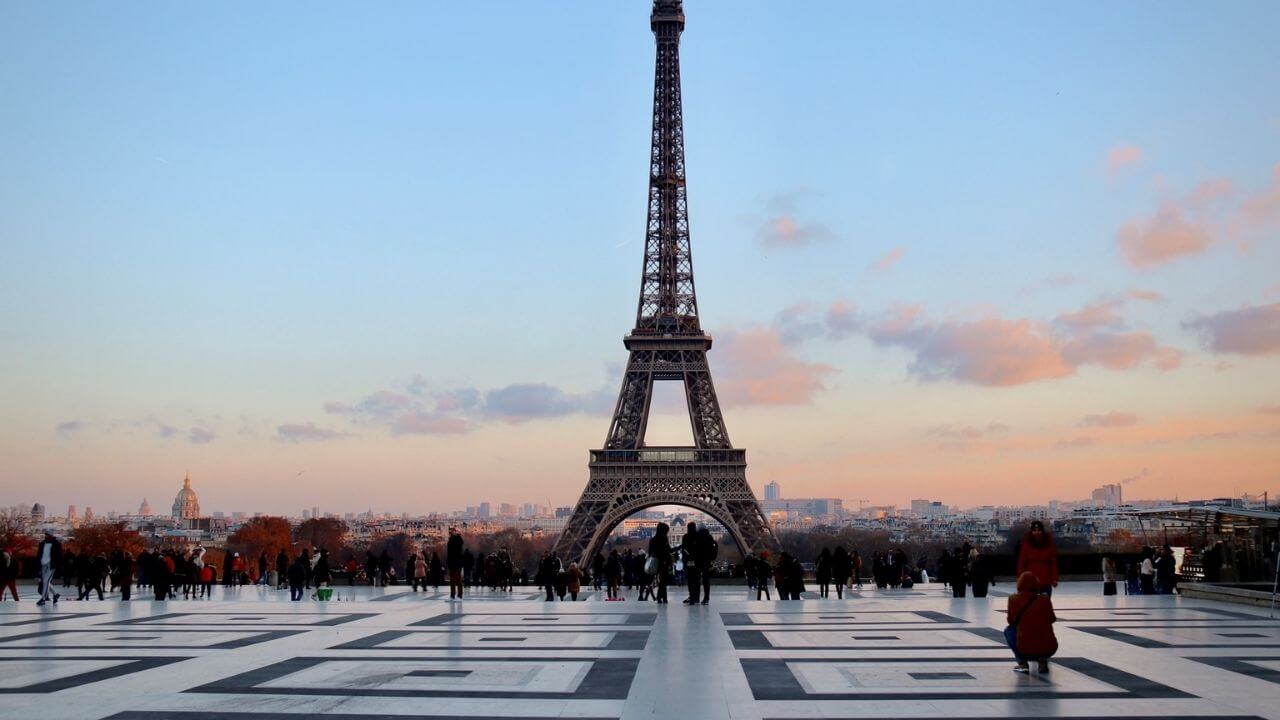
From one angle of the story, France was named after a spear…but I’ll tell you more and you can decide!
In the 3rd century AD there was a Germanic tribal federation called the Franks who invaded the region, contributing to the fall of the Roman empire.
Their name came from a word they had, frankaz, which meant “fierce”, daring or eager to fight. The Latins called them Franci, with Francia meaning realm of the Franks.
And later, their tribal name came to mean “free” as the Franks were the only true freemen after subjugating the Romanized Gauls.
Nobody makes you pay taxes when you’re the conquerors!
So what do we have now… Land of the fierce, Land of the Franks and Land of the Free.
But there’s more…their national weapon was a kind of spear called the frankōn – something like a javelin.
And according to tradition, the Franks got their name from their spear.
To further confuse things, there was a very successful Germanic king called Francio, and one ancient story says HE gave France its name.
So guys, take your pick! What’s it gonna be?
#7 England
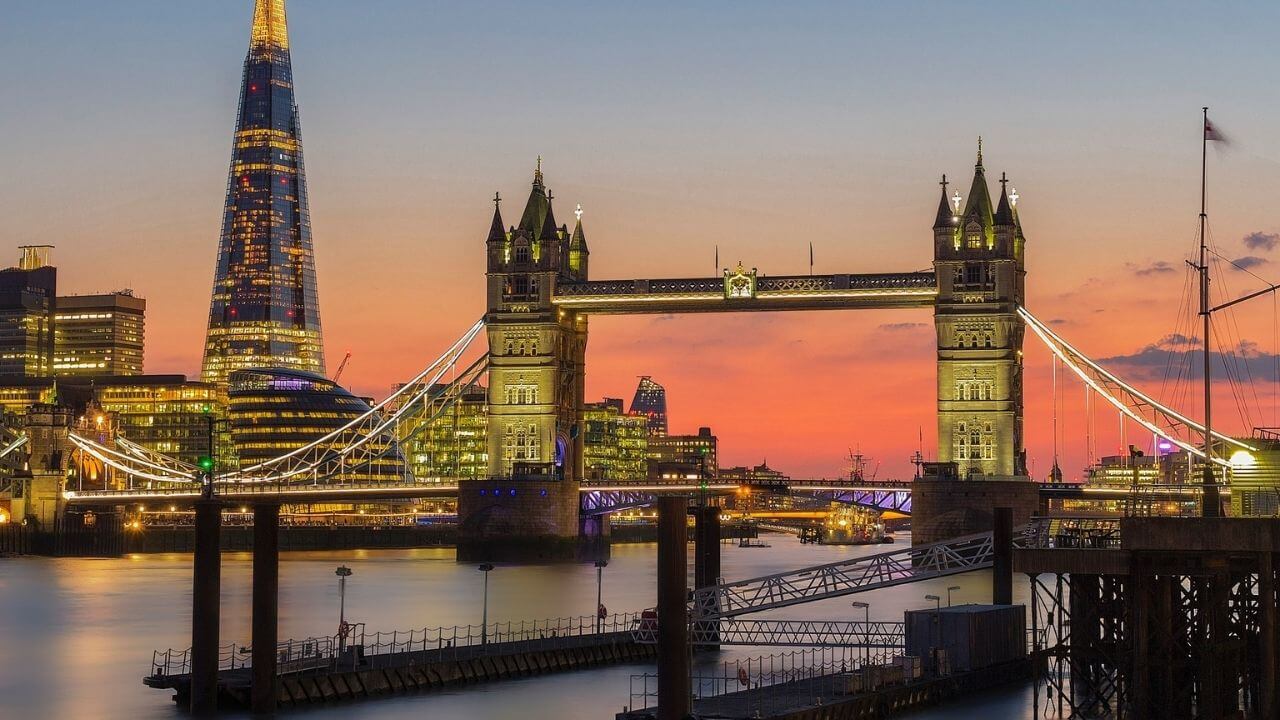
England has had some poetic names in its time.
In Arthurian legend, England was popularly called Loegria, related to the Welsh word for England.
England was also called Albion, the original name of the island of Britain and the one Shakespeare liked to use.
Some say it’s in reference to the White Cliffs of Dover, but the Celtic base for Albion referred to the illuminated world above ground, as opposed to the dark underworld.
Now, in the Early Middle Ages there were many Germanic tribes who settled in Great Britain, and one of them was called the Angles, pronounced “ang-gleez”, from the Anglia peninsula.
I guess they were dominant, since England was later named after them: Land of the Angles.
Not “angles”, and nothing to do with the shape of the land!
By the 19th century the name had evolved to “Engla londe” – meaning “the land inhabited by the English”.
But the original Angles of Anglia were hardcore fishing people so I wouldn’t be surprised if this all began with angling!
So yeah, my home might be named after fishing. I think I’m gonna bring back Albion.
#8 Ireland
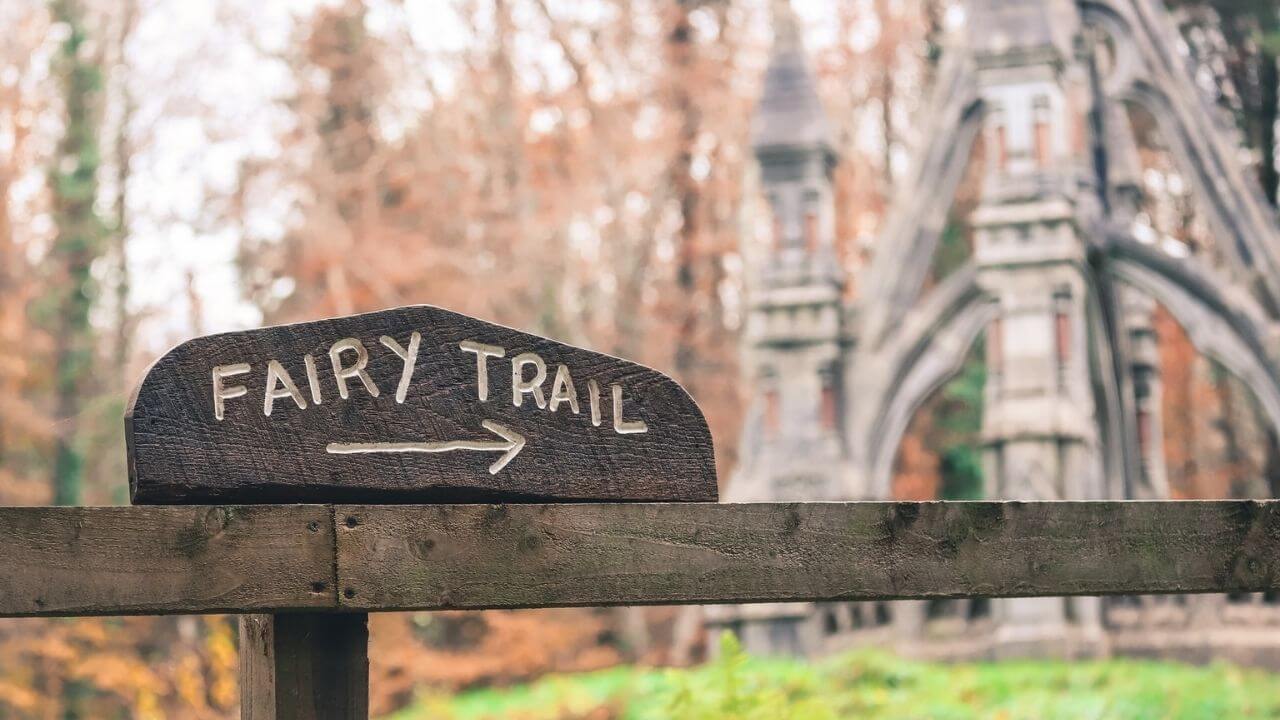
In Ireland, mythology surrounds you and if you want to avoid bad magic, listen carefully…
Ériu was the goddess of Ireland and she’s often seen as a modern-day personification of Ireland.
Her name means “plentiful” or “abundant”.
She was one of 3 sisters who were members of the Tuatha Dé Danann, a supernatural race that inhabited Ireland before the coming of the first humans.
Together Ériu and her sisters are often thought of as different aspects of a single triple-goddess.
When the first human invaders came, all 3 sisters asked that their name be given to the country.
Ériu got her wish, but Banba and Fódla are still sometimes used as poetic names for Ireland.
In Gaelic, Ériu is “Eire”. Combine that with the English (or Old Norse) word “land” and you have Ire-land.
But how’s this…
For a long time, real kings used to have a ceremonial marriage to Ériu each year, keeping her as the highest power in Ireland.
But eventually she and her sisters retreated to the hills…
They meet secretly in hawthorn trees and they’re far smarter than you, so that’s why you should never cut down a fairy tree in Ireland!
#9 Germany
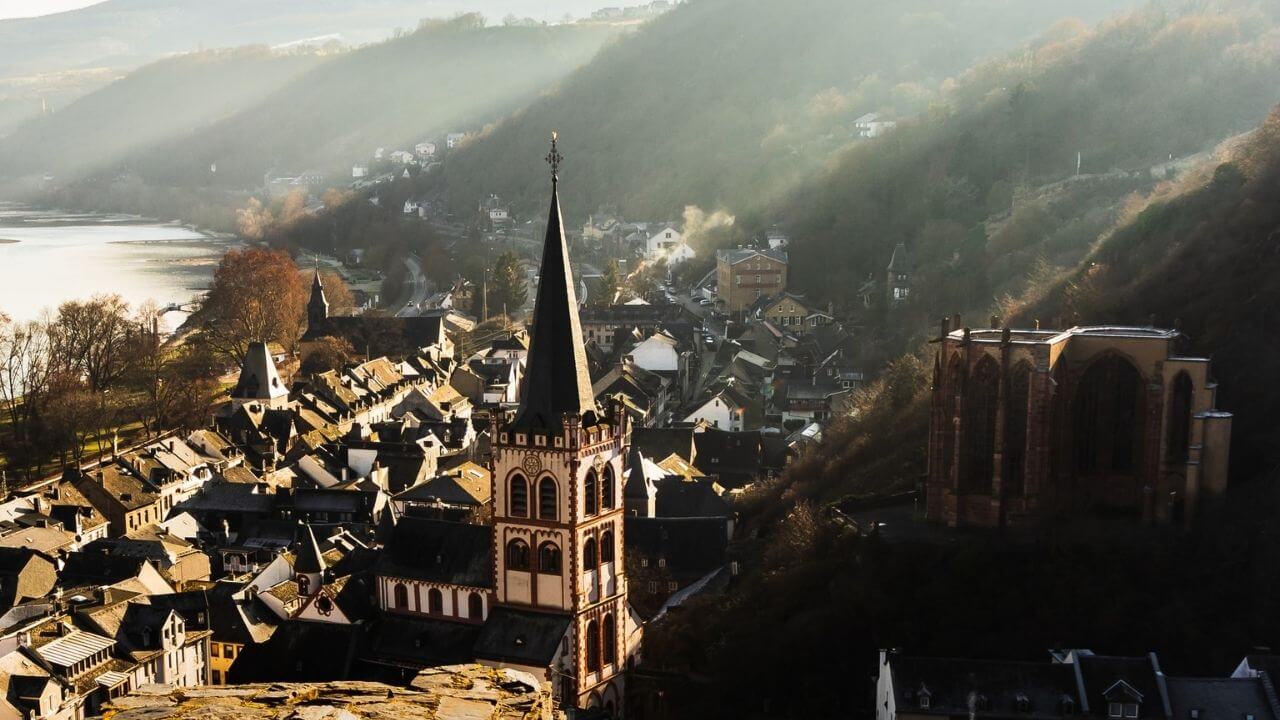
You might have noticed by now that a bunch of European countries were named after the tribes that were living at the time.
The Franks, for example, often fought with the Alemani tribes who occupied regions along the Rhine River – which is why the French call Germany Allemagne, and the Spanish call it Alemania.
Alemanni means “all men” or “men united”.
Actually, Germany has more names than any other country in the world. You probably know they refer to their own country as Deutschland.
I’ll get to what “Germany” means in a moment, but why all these names?
Well, in the 8th century the locals didn’t identify themselves as either Allemanis or Germans.
They wanted to be free from the influence of Roman and Latin culture, and had a distinct name for themselves: Diutisc.
Over time, it became Deutsch and the country became Deutschland.
Julius Caesar referred to the tribe that drove out the Gauls as Germani, and their lands as Germania, but it was those Gauls who came up with the name in the first place, and it’s actually Celtic!
Us English started calling it Germany in 1520.
And it means something nice…”neighbours”.
#10 Finland
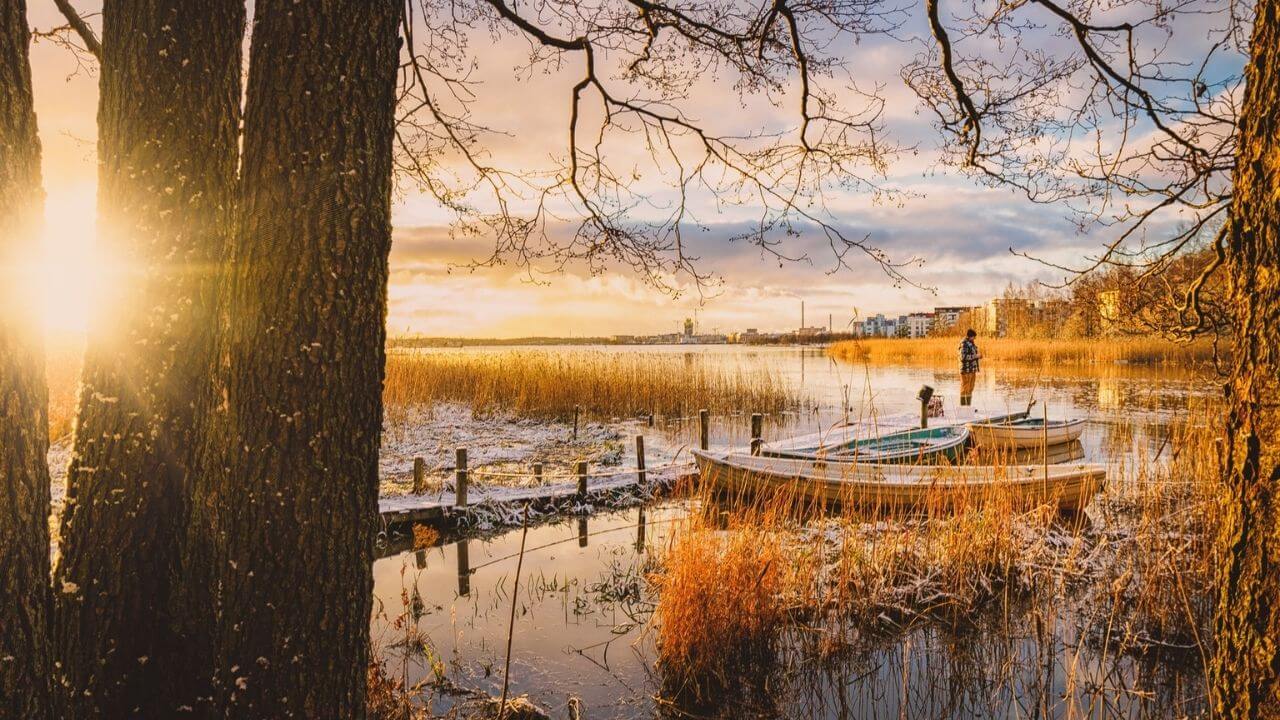
In winter, Lapland looks like a scene out of a fairytale so it definitely needs a pretty name to go with it.
But try and work this one out: we call it Finland, but the original Finnish alphabet didn’t even have the letter F!
But this will make sense in a moment… kind of.
The SWEDES called the south-western region finlonti or finlandi, while the Old English described people from Scandinavian as Finna.
So who invented it… English or Swedes?
Well, I don’t think it matters to the Finns, because Finns call their country Suomi!
No-one knows where that name came from, or why, but it’s interesting that even after centuries of being called Finland, the name Suomi is still alive and well.
So what does Suomi mean?
Well, turns out even the Finns themselves don’t know for sure.
The closest two words are suomaa which means swampland, and suomu which means scale of a fish.
There are stories that people in Finland used to wear clothes made out of fish skins – quite an art, I believe.
Hey, maybe the Finns were the original mermaids?
#11 Italy
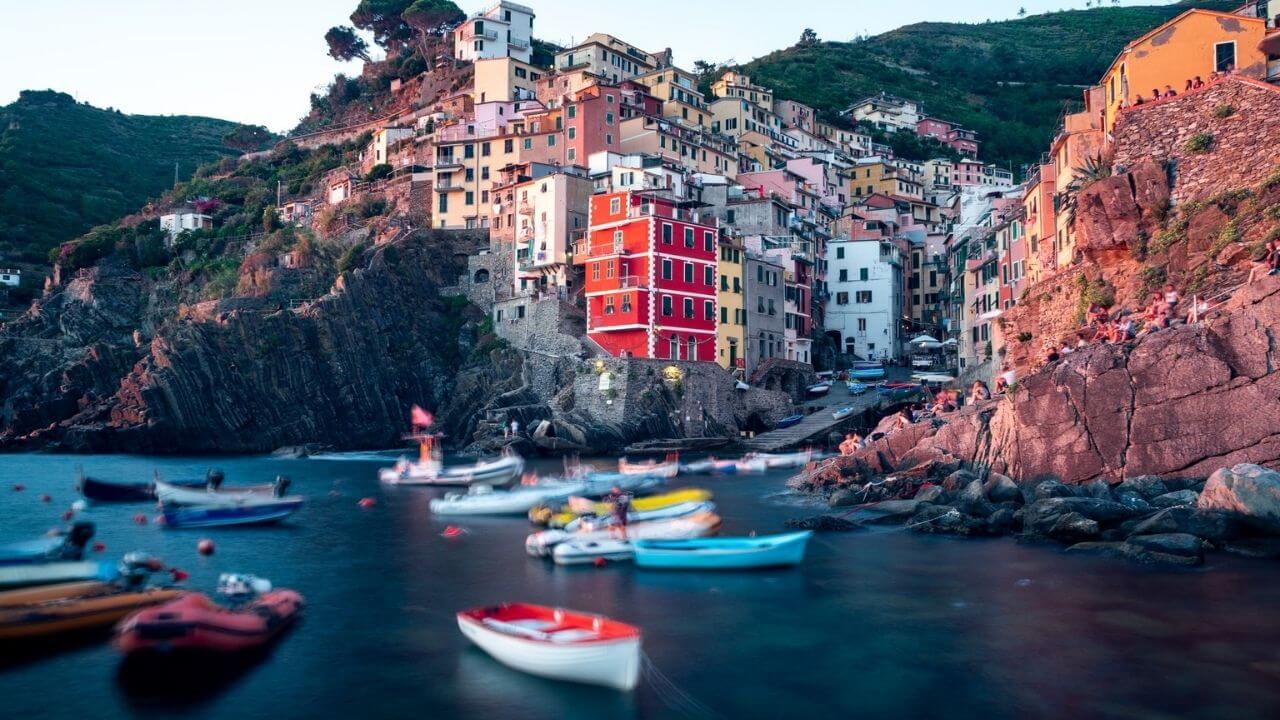
The ancient Greeks called it the realm of fog and smoke because of all the volcanoes, and had variations like “land of the fiery sunset”.
They referred to the people as Italoi, but, of course, there’s more to Italy’s naming.
Throw in some kings, calves and gods with those volcanoes, and you get another fascinating and 100% true origin story…
The first tale says a mythical king called Italus gave his name to the country 16 generations before the Trojan War.
In Roman legend Italus was the father of Romulus and Remus, the founders of Rome. But where Spain had rabbits and Malta had bees, Italy had an abundance of beautiful calves, and the bull was a sacred symbol of the southern Italic tribes.
Naturally, the gods had something to do with it.
See, Hercules was ordered to travel to the End of the World and bring back the cattle of the giant Geryon.
Hercules stole the cattle, but had enormous difficulty bringing them back to Greece, because the sea god’s sons tried to steal them from him.
One bull got loose and jumped into the sea, swimming all the way to Sicily and then kept swimming to the neighboring country.
So it seemed quite reasonable to name the land after the bull!
And the native word for bull was italus.
Of course, not everyone gave Hercules credit for that.
And the simple version is just that Italy’s name evolved from the extinct Oscan word víteliú meaning “land of young cattle”.
But seems to me there’s no doubt it – Italy was named after those stolen swimming bulls!
#12 Cyprus
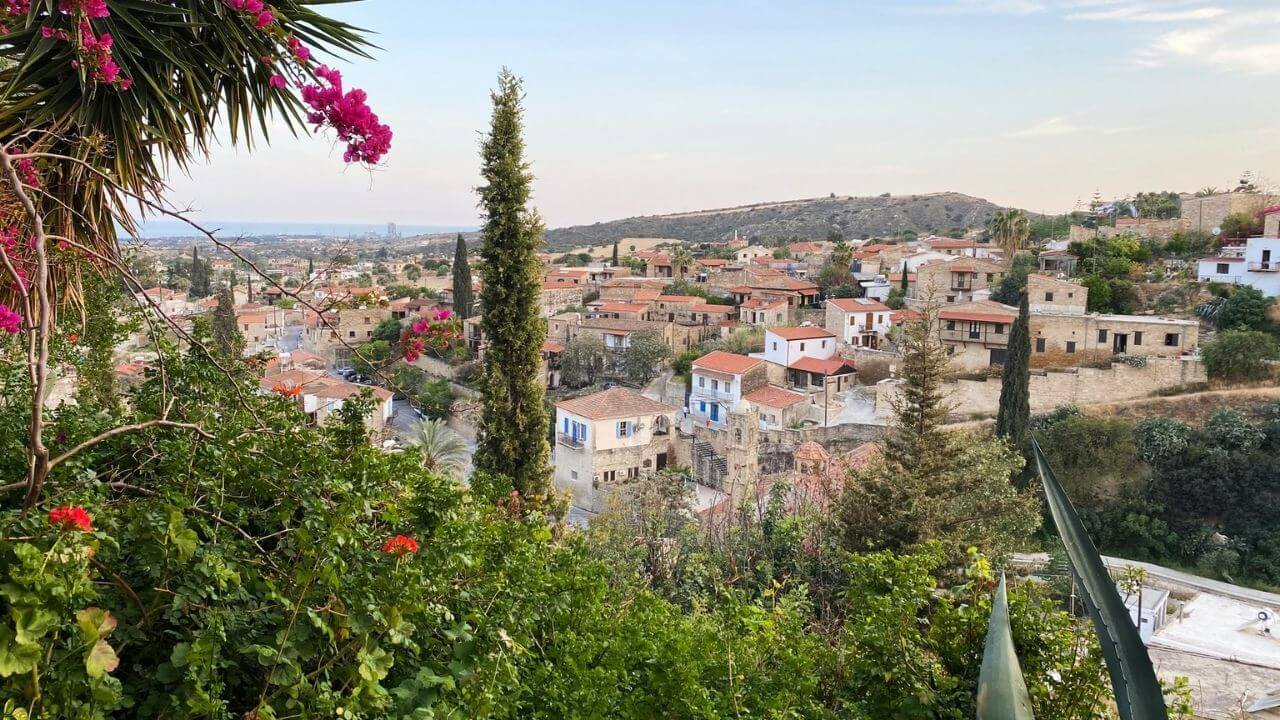
In 1982 an astonishing thing was found under the seas of Turkey…
A Bronze Age shipwreck!
It’s the oldest shipwreck ever found – 3 300 years old – and I’ll tell you what that has to do with the name of Cyprus.
A very long time ago, Cyprus was famous for it’s copper resources.
In those times pure copper could be found even on the surface of the earth, and it was big international business for the islanders – they made all kinds of tools, weapons and personal objects and supplied the Near East and Egypt with copper.
But the first mention of the island is in Near Eastern records, calling it Alasia. Lovely name, Alasia, but we don’t know enough about the exact meaning…
What we do know is there was a LOT of trading with copper going on!
And it wasn’t easy – the seas were full of pirates they called Sea Peoples.
Anyway, the ancient Greeks later called the island Kúpros and this is where the word copper comes from.
So what about that Bronze Age shipwreck?
Turns out it was laden with 10 tonnes of Cypriot copper, and was probably on its way to the fabulous palaces in Greece!
So did the Sea Peoples get them? I don’t know!
#13 Kosovo
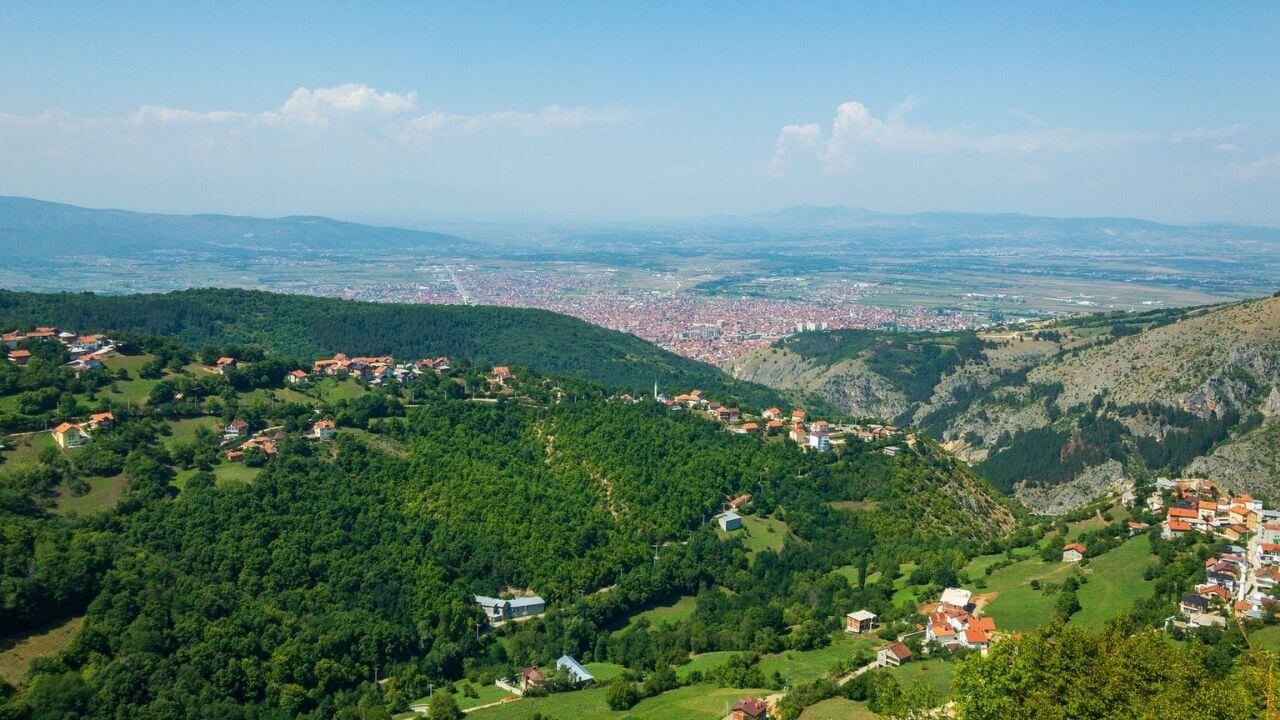
In 1389 there was a terrible and legendary battle between Prince Lazar of Serbia and the Ottomans, and both armies were wiped out.
Now, the area had a lot of blackbirds and as you probably know, blackbirds are scavengers.
The story goes that the bodies were left in the field, and I’m gonna skip a chapter here, but the field got the Serbian name Kosovo Polje which means “field of the blackbirds”.
It was shortened to Kosovo – or “blackbirds” in Serbian – thus “land of the blackbirds”.
Kosovars prefer the altered the name, Kosova, which is understandable.
But once upon a time, the region had a much sweeter name: Dardania, which means “pear” – and I’m sure there’s a story behind that, too!
How European Countries Got Their Names
So there you have it – now you know how European countries got their names. Well, 13 of them at least.
If this tour of Europe and the fascinating story behind how European countries got their names have piqued your interest, then maybe it's time to start learning the languages of some of these countries.
And the best way to pick up a new language is to learn through stories, not rules. And that's exactly what you do when you learn through the StoryLearning® method.
You immerse yourself in books and stories in your target language, and as you lose yourself in the story, you pick up the language naturally, just like you did when you were learning your native language as a child.
Find out more and get a free 7-day trial of the course of your choice.

Olly Richards
Creator of the StoryLearning® Method
Olly Richards is a renowned polyglot and language learning expert with over 15 years of experience teaching millions through his innovative StoryLearning® method. He is the creator of StoryLearning, one of the world's largest language learning blogs with 500,000+ monthly readers.
Olly has authored 30+ language learning books and courses, including the bestselling "Short Stories" series published by Teach Yourself.
When not developing new teaching methods, Richards practices what he preaches—he speaks 8 languages fluently and continues learning new ones through his own methodology.
